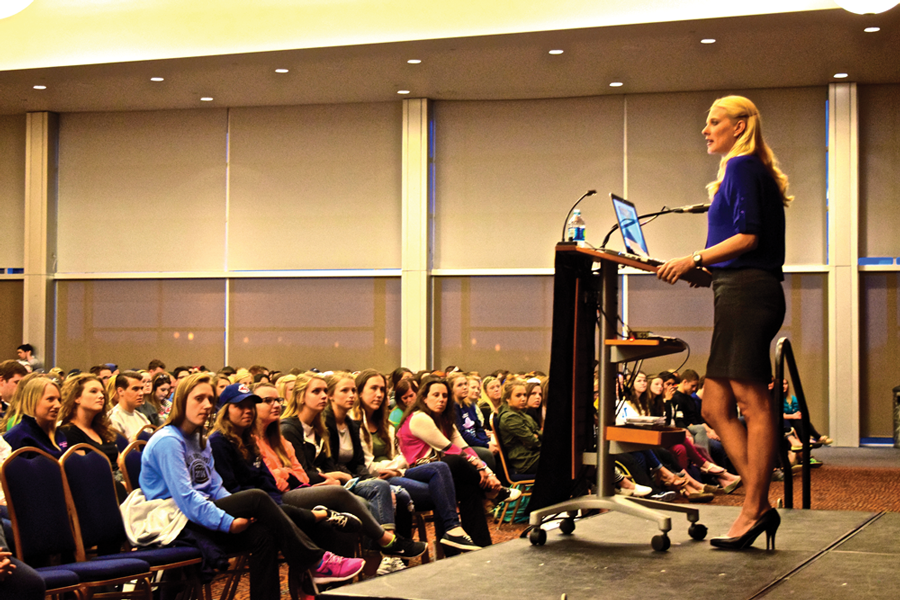Former college football player tells her sexual assault story
Katie Hnida relates her story of what happened in the shadow of her success.
April 23, 2015
The first female to score points in an NCAA Division I-A football game shared the same fate as many other female college students: she was raped.
On Tuesday, April 21, Katie Hnida came to UA to tell her story; students gathered in the Union ballrooms to listen. Although her life has been filled with great success, she has also—like many others—faced hurdles along the way.
Hnida’s story started with football. When she was 14 years old, her dad said she could play—as a joke. But she thought: “hey, this is actually kind of fun.”
After high school, Hnida went to the University of Colorado Boulder as a walk-on placekicker.
While there, Hnida says she was verbally abused, tormented, and sexually assaulted by her teammates; the breaking point was when one of her trusted teammates raped her.
Hnida now advocates for victims of rape—men and women—by relating her story and how she handled it.
Hnida said the aftermath of sexual assault includes anxiety, depression, isolation, sleep problems, hyper arousal, flashbacks, drug and alcohol abuse, and dissociation.
“I started internally feeling like it was my fault,” Hnida said. “At the time, it felt like a reflection on me.”
After her rape, Hnida said she did not leave her apartment for days. Eventually, she left the University of Colorado Boulder because of it, saying to herself: “I do not want to live like this anymore.”
Hnida transferred to the University of New Mexico, making the New Mexico Lobos football team as a walk-on placekicker. There, she said she began to heal, thrive, and coexist with a new team; her teammates treated her like “one of the guys,” and looked out for her at all times.
Hnida did not tell anyone about her rape for a long time, which is common among victims of sexual assault and rape.
“If someone comes to you and tells you that they were raped, it is essential that you let them know: ‘Whatever you need, I am here,’” Hnida said.
Hnida said her biggest support came from her brother and teammates at the University of New Mexico, who made her always feel safe.
UA has many resources available to victims of sexual assault and rape, including the Sexual Assault Response Team and Rape Crisis Center’s services. More information can be found on http://www.uakron.edu/safety/annual-safety-report/protocols.dot. The Rape Crisis Hotline is 330-434-7273.












